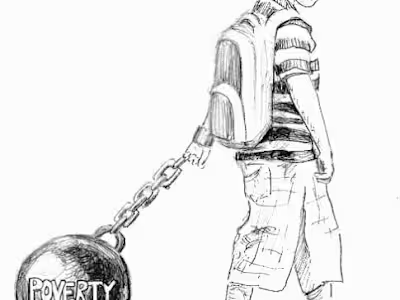Blog writing : Freedom of speech
Like this project
Posted Aug 29, 2023
This topic highlights the growing role in public discourse for social media platforms. Before blogging on a website one must know their censorship policies.
Likes
0
Views
4
Title:
Exploring the Significance and Boundaries of Freedom of Speech
Introduction
Freedom of speech is a fundamental human right that underpins democratic societies and allows for the expression of diverse ideas and opinions. This right, often enshrined in constitutions and international agreements, empowers individuals to voice their thoughts, critique governments, engage in public discourse, and contribute to the development of a well-informed society. However, the concept of freedom of speech is complex and multifaceted, often sparking debates about its limits and responsibilities. This article delves into the significance of freedom of speech, its historical context, its limitations, and the challenges it faces in the digital age.
Historical Roots of Freedom of Speech
The origins of freedom of speech can be traced back to ancient Greece, where democratic city-states allowed citizens to openly express their opinions in public forums. Over time, this idea evolved and found its way into the Enlightenment era, where philosophers like John Locke and Voltaire advocated for the right to express thoughts without fear of censorship. The concept gained prominence in the United States with the First Amendment to the Constitution, which protects freedom of speech, religion, and the press. This amendment has served as a cornerstone for similar rights in other democratic societies.
Significance of Freedom of Speech
1. Promotion of Democracy: Freedom of speech is crucial for a functioning democracy as it enables citizens to participate in public discourse, voice concerns, and hold those in power accountable. It allows for the competition of ideas, leading to informed decision-making.
2. Advancement of Knowledge: A society that values freedom of speech fosters an environment where intellectual exploration and innovation can flourish. Open discussions, debates, and academic pursuits contribute to the growth of knowledge.
3. Cultural Diversity:
Protecting freedom of speech ensures that diverse cultural, religious, and ideological perspectives can coexist without repression. It allows minority voices to be heard and understood.
4.Social Progress:
Many social movements, such as civil rights and LGBTQ+ rights, have relied on the freedom of speech to raise awareness about injustice, mobilize support, and bring about positive change.
Limitations and Boundaries
While freedom of speech is essential, it is not absolute and has certain limitations to prevent harm and maintain social order:
1.Incitement to Violence:
Speech that directly incites violence or poses an imminent threat to public safety is generally not protected. Balancing security with free expression is a delicate task.
2.Defamation and Libel:
False statements that harm a person's reputation, known as defamation or libel, can be subject to legal action. Protecting an individual's reputation is often considered more important than unrestricted speech in this context.
3.Hate Speech:
Many countries restrict hate speech, which targets individuals or groups based on attributes like race, religion, or gender. Striking a balance between preventing harm and preserving free expression remains contentious.
4.Obscenity and Pornography:
Some societies limit explicit content that is considered offensive or harmful to public morals, particularly when children are involved.
Challenges in the Digital Age
The digital revolution has brought both opportunities and challenges to freedom of speech:
1. Online Disinformation
The ease of spreading false information online has led to concerns about the impact on public discourse, as well as the role of tech platforms in moderating content.
2.Social Media Regulation: Platforms like Facebook, Twitter, and YouTube grapple with moderating content that ranges from hate speech to political manipulation, raising questions about private companies' control over public discourse.
3.Cancel Culture:
The rise of "cancel culture" raises debates about whether it is a legitimate exercise of free speech and accountability or a threat to open dialogue.
4.Privacy Concerns:
The tension between free speech and privacy arises when private conversations or information are exposed without consent.
Conclusion
Freedom of speech is a cornerstone of democratic societies, enabling the exchange of ideas, fostering cultural diversity, and propelling social progress. However, the evolving digital landscape and ongoing debates about its limits underscore the complexity of this right. Striking a balance between preserving individual liberty and preventing harm remains an ongoing challenge, as societies continue to adapt to the changing dynamics of communication and expression.





